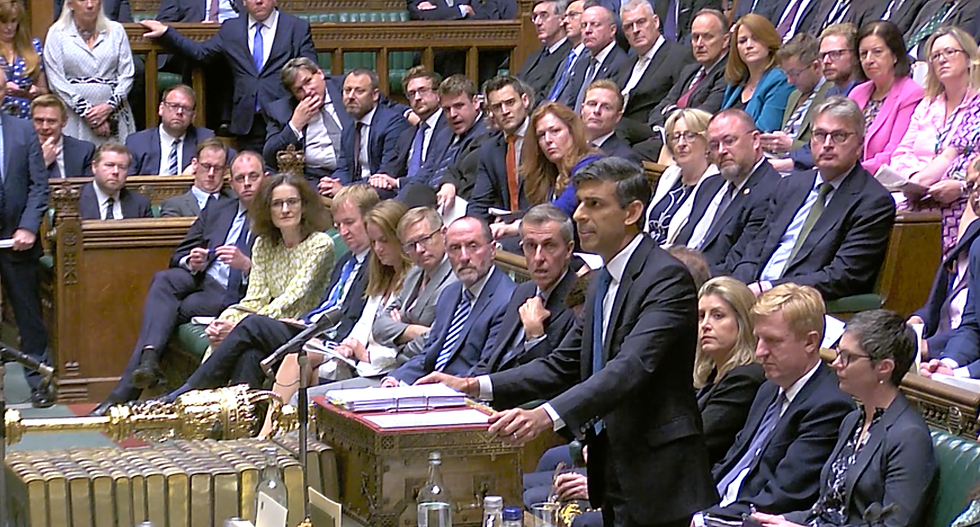British Foreign Policy Must-Reads 17-23 July: Public Opinion, Defence, China, Emigration, Brexit
- Tim Oliver

- Jul 23, 2023
- 3 min read
A week dominated by domestic politics thanks to three by-elections left little room for frontline foreign policy discussions. That didn't stop the British Foreign Policy Group releasing their 2023 survey of public opinion on foreign policy. Nor did it stop the ongoing debates about the UK's approach to China, especially following last week's Intelligence and Security Committee report. And the Prime Minister apologised to gay veterans for the historical mistreatment they faced.

Public opinion—British Foreign Policy Group: 2023 Annual Survey of UK Public Opinion on Foreign Policy and Global Britain.
Strategic culture—The Conversation: The UK's island identity has long shaped its political outlook – is that why it currently feels so adrift? UK foreign policy has long been shaped by a particular geopolitical way of conceiving the nation’s place in the world. This island identity may have been forged in imperial times, but it remains hugely relevant in the post-Brexit world.
Defence—MoD: Defence Command Paper 2023: Defence’s response to a more contested and volatile world. How Defence will respond to the changing context and deliver on the Integrated Review Refresh within its resource envelope, increasing its productivity and focusing on areas that will achieve real-world impact.
Gay veterans—BBC: Rishi Sunak apologises to LGBT veterans for past armed forces gay ban. Rishi Sunak has apologised for the historical treatment of LGBT veterans who were sacked or forced out of the military for being gay.
China—UKICE: The Intelligence and Security Committee report on China. Kerry Brown evaluates the UK Intelligence and Security Committee’s report on China, published last week.
China—Spectator: Tory floundering over China is a gift to Labour. Earlier this month, a Chinese spy reportedly tried to enter a private House of Commons meeting with Hong Kong dissidents. The alleged spy claimed to be a lost tourist, and there was a brief stand-off before he quickly left. The area was far from those usually visited by tourists, and some Hongkongers, fearing for their safety, covered their faces during the event.
Emigration—UKICE: Is it time for the UK to pay more attention to emigration? Michaela Benson examines the number of people leaving the UK for the purposes of long-term migration. She highlights the absence of emigration from the political and policy debate and asks whether in the context of labour shortages in certain sectors it might be time for this to change.
Trade Secretary—Politico: Is Kemi Badenoch still the future? UK Tories aren’t so sure. Numerous officials say the business and trade secretary’s new super-department is proving difficult to master.
Digital regulations—CER: On digital competition, Britain could learn from its regulatory mistakes. The traditional British model of economic regulation has not always supported investment and innovation. The UK’s digital competition bill could learn from these mistakes.
Horizon—FT: Rishi Sunak to push back decision on UK rejoining Horizon until after summer. Scientists’ hopes for end to delay on access to EU research programme look to be dashed.
Brexit overview—New York Times: In the U.K., a Disaster No One Wants to Talk About
Brexit and visas—The Sunday Times: How European baristas and au pairs could return to Britain under government scheme. The Home Office wants to expand its system of short-term visas.
Brexit and devolution—The Political Quarterly: Brexit and the Death of Devolution. Devolution was almost universally regarded as heralding a fundamental shift in the nature of the United Kingdom of Great Britain and Northern Ireland. But, since the 2016 Brexit referendum, the UK government has become increasingly hostile—not only towards the Labour and SNP-run administrations in Scotland and Wales, but to the very existence of devolution. Recent legislative changes—particularly the UK Internal Market Act—have given central government carte blanche to intervene in what were previously regarded as areas of devolved competence. The inevitable result has been to render the governance arrangements for the devolved countries more adversarial and less stable than was previously the case. One immediate consequence of ‘the death of devolution’ has been to trigger calls by devolutionists for more far-reaching changes to the state than were achieved in the late 1990s. It is far from clear, however, that such changes are politically achievable, raising the prospect of an extended period of stasis in which the current arrangements persist, not because they have any real supporters, but rather, because no alternative is possible.





Comments